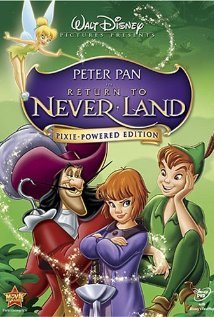
Can Video Games Teach Players About Real-World Economics?
By Movieguide® Contributor
Modern video games often have complex marketplaces which can teach players virtual lessons that apply to the real-world economy.
“They match really well,” researcher Dmitri Williams said. “When people have the same incentives, people feel about their in-game money the way they feel about the real-world money.”
This can create an environment that leads to all kinds of economic situations–both good and bad–that are true to the real-world market.
In 2009, for example, players in the video game Eve Online experienced a run on the banks. Depositors were desperate to pull out their ISKs–the game’s virtual currency. Because the institution, called Ebank, was a side project set up by players, it did not have any deposit insurance, resulting in many players losing their ISKs due to the run.
This incident caused the players to learn a real-world lesson about financial panics and the importance of federal deposit insurance. However, the developer-sanctioned economy for Eve Online took no hit because the team has multiple economists on staff.
“They do this because they know that the economy is part of the gameplay,” Joost van Dreunen, a professor at the Stern School of Business in New York, said. “You don’t just go and kill the dragon or fly the ship from A to B to deliver the package. There’s also managing a portfolio and an inventory and gathering resources to get to the next level.”
“In many ways, economy and gameplay are interspersed. They very much interact,” he added.
Eve Online isn’t the only game with a sophisticated economy. Trevor Cardoza, a video game designer, cited Destiny 2 as just one of many games that have players making financial decisions that mirror real life.
“Destiny 2 is a great example,” Cardoza said. “Before you have to spend glimmer, which is the basic currency, it’s like, ‘Ok, what is glimmer worth? Like, how much grinding and in-game action is glimmer worth? And then can that be turned into a salary? Can that be turned into X amount of money?’”
Video games are a great place for kids and teens to learn about the economy because it allows them to make mistakes and learn in an environment with much lower stakes than on the real market.
“I would argue that most students today, and that the younger generations, they learn about the financial system through gaming more than any other source,” van Dreunen said.
However, gamers are not the only people learning from in-game economies. Because of their proximity to reality, researchers study video game economies to learn about real-world economic behavior.
Williams has conducted multiple studies on the multiplayer game World of Tanks to understand how the people in our lives influence our economic purchases.
“It’s pretty fantastic for us, a great sandbox to play in,” Williams said. “We were able to look at when this player buys a virtual tank, do their friends buy the virtual tank? If they play more, do their friends play more? And so we could find who the influencers are in their system.”
In another study, Williams found that players in a game called Everquest II lived out the 2008 financial crisis before the housing bubble burst, sending the real-life economy into a recession. Had researchers been looking at this game at that time, they could have sounded the alarm months before the real economy was sent into a downward spiral.
It’s amazing that virtual economies can teach so much about the real world. As video games only become more popular, it is encouraging that they have value beyond just entertainment.
Questions or comments? Please write to us here.


 - Content:
- Content: 
